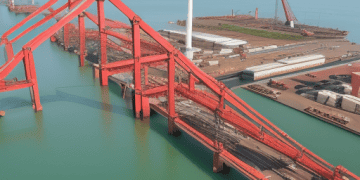UK Foreign Secretary David Lammy is concluding his first official tour of Africa, aimed at recalibrating the UK’s relationship with the continent. Lammy outlined a vision for future partnerships, emphasizing long-term growth, mutual respect, and prosperity. His trip focuses on strengthening ties with Nigeria and South Africa, the continent’s two largest economies.
Lammy, appointed as foreign secretary earlier this year in the Labour-led government, is seeking to reset the UK’s approach to Africa. This visit follows a period of shifting global dynamics, with China becoming the largest trade partner for many African countries, and Russia expanding its influence, particularly in West Africa. The UK’s role has been seen as more subdued, particularly with South Africa, which has been a key partner but has seen relatively less engagement in recent years.
Lammy’s diplomatic outreach aims to foster relationships that will allow the UK and African nations to grow together. “I want to hear what our African partners need and work on a relationship that benefits us both,” he said during the visit.
Despite its historical ties with many African nations, the UK’s foreign policy has evolved over the years. As former colonies gained independence, the UK maintained close ties through the Commonwealth, a platform that continues to play a significant role in shaping diplomatic relations with several African states.
The focus of Lammy’s trip comes amidst broader changes in the geopolitical landscape. Africa’s importance has grown, with the continent expected to account for 25% of the global population by 2050. This demographic shift, coupled with Africa’s natural resource wealth, is drawing the attention of global powers eager to secure trade and investment partnerships.
The UK Foreign Office has acknowledged the importance of Africa’s economic potential and its young workforce, with an emphasis on sharing skills to support the region’s development and future growth. However, in light of domestic economic challenges, the UK’s traditional focus on development aid has shifted, with fewer resources allocated to Africa.
While the Labour government has highlighted Africa’s growing role in the global economy, experts suggest the UK will need to adjust its approach to meet the continent’s evolving needs. This includes building relationships based on economic cooperation and mutual benefit.
During the visit, Lammy emphasized the UK’s support for a diverse range of African nations, including South Africa, where ties are seen as particularly important due to the historical links formed during the anti-apartheid movement.
In addition to addressing development and trade, Lammy’s tour also involves discussions on broader global issues. South Africa’s positions on international conflicts, such as the wars in Ukraine and the Middle East, reflect a different perspective from that of many Western countries. However, diplomatic experts suggest that differences on these issues need not hinder the growth of mutually beneficial relationships.
As the tour concludes, it remains to be seen how the UK will balance its domestic priorities with the desire to strengthen ties with Africa, a region with immense growth potential in the coming decades.
Explore top supply chain news stories at The Supply Chain Report. Visit ADAMftd.com for free international trade tools.
#DavidLammyAfricaVisit #UKAfricaRelations #NewDiplomacyInAfrica #ForeignPolicyRevolution #UKAfricaPartnership















